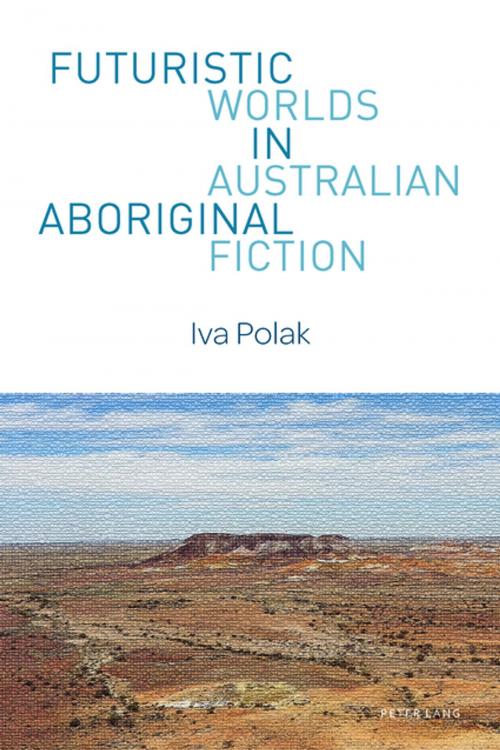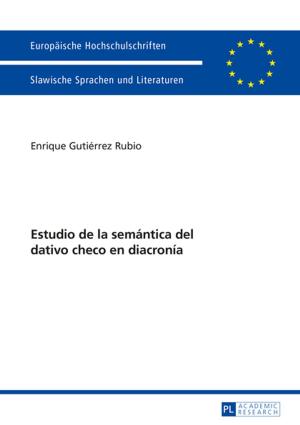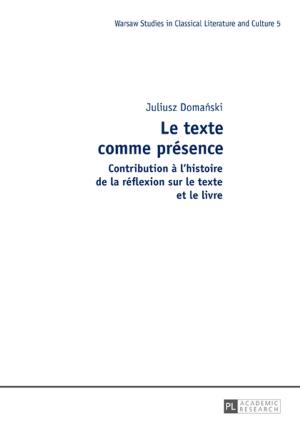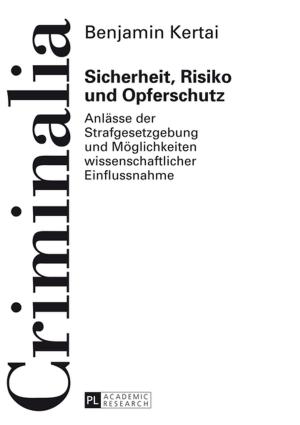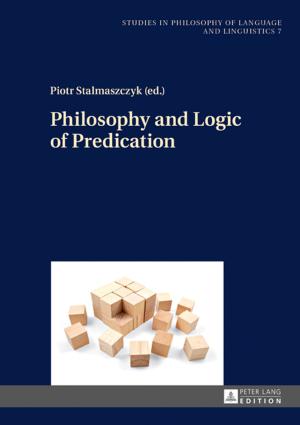Futuristic Worlds in Australian Aboriginal Fiction
Fiction & Literature, Literary Theory & Criticism, Science Fiction & Fantasy, Science Fiction| Author: | Iva Polak | ISBN: | 9781787072022 |
| Publisher: | Peter Lang | Publication: | July 19, 2017 |
| Imprint: | Peter Lang Ltd, International Academic Publishers | Language: | English |
| Author: | Iva Polak |
| ISBN: | 9781787072022 |
| Publisher: | Peter Lang |
| Publication: | July 19, 2017 |
| Imprint: | Peter Lang Ltd, International Academic Publishers |
| Language: | English |
This is the first study that brings together the theory of the fantastic with the vibrant corpus of Australian Aboriginal fiction on futurities. Selected works by Ellen van Neerven, Sam Watson, Archie Weller, Eric Willmot and Alexis Wright are analysed as fictional prose texts that construct alternative future worlds. They offer a distinctive contribution to the relatively new field of non-mainstream science fiction that has entered the critical domain of late, often under the title of postcolonial science fiction. The structures of these alternative worlds reveal a relationship – sometimes straightforward, sometimes more complex – with the established paradigms of the genre. The novelty of their stories comes from the authors’ cultural memory and experience of having survived the «end of the world» brought about by colonisation. Their answers to our futurity contain different novums that debunk the myth of progress in order to raise the issue of a future without a human face.
This is the first study that brings together the theory of the fantastic with the vibrant corpus of Australian Aboriginal fiction on futurities. Selected works by Ellen van Neerven, Sam Watson, Archie Weller, Eric Willmot and Alexis Wright are analysed as fictional prose texts that construct alternative future worlds. They offer a distinctive contribution to the relatively new field of non-mainstream science fiction that has entered the critical domain of late, often under the title of postcolonial science fiction. The structures of these alternative worlds reveal a relationship – sometimes straightforward, sometimes more complex – with the established paradigms of the genre. The novelty of their stories comes from the authors’ cultural memory and experience of having survived the «end of the world» brought about by colonisation. Their answers to our futurity contain different novums that debunk the myth of progress in order to raise the issue of a future without a human face.
